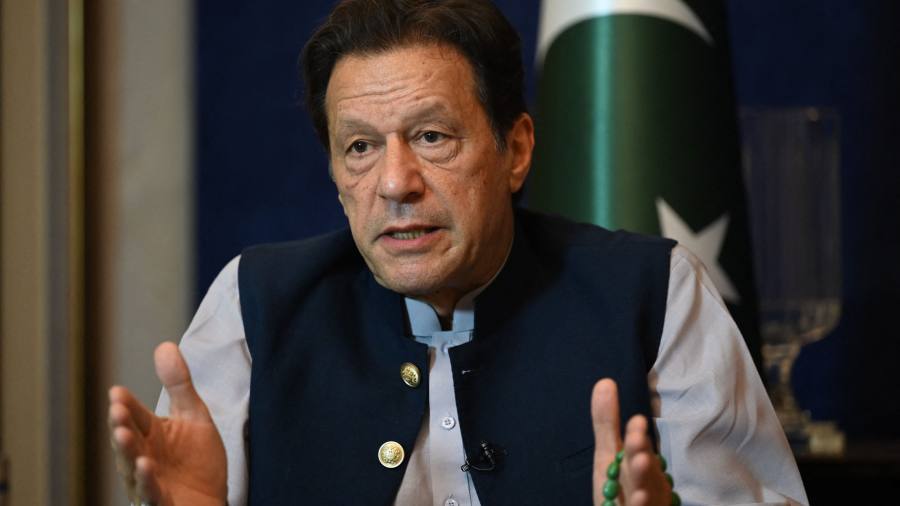Pakistan’s supreme court on Thursday ruled that the arrest of former prime minister Imran Khan by a government anti-graft agency was illegal. The announcement came after two days of some of the worst political violence the country has experienced in decades.
At a hearing on Thursday afternoon, the court ordered Khan’s release from the custody of the National Accountability Bureau, but required him to spend the night under protection in a police guest house before an appearance before the Islamabad high court on Friday.
Khan’s arrest on Tuesday had tipped Pakistan’s widening political and economic crisis into violent unrest. His release just two days later underscored the central role in the nation’s politics played by the 70-year-old former cricket star, who was ousted as prime minister in April last year.
Details of the supreme court’s decision were not immediately available, but Babar Awan, a senior counsel for the former prime minister, told reporters it had “reversed all legal proceedings against Imran Khan”.
The former prime minister is certain to remain the main focus of political attention amid political turmoil and what analysts say is the risk of national debt default ahead of elections that must be held by October.
Before the supreme court ruling on Thursday, Pakistan’s rupee fell nearly 3 per cent to about 299 rupees to the US dollar, a record low.
In the two days before Khan’s release, at least five people were reported to have been killed in violence in cities across Pakistan that included attacks on government buildings. Police arrested several hundred protesters and at least three senior leaders of Khan’s Pakistan Tehreek-e-Insaf party (PTI).
During Khan’s appearance at the supreme court, one of the members of the three-judge bench asked him to urge his followers to restrain themselves, according to a PTI senior member who declined to be named.
The member said Khan replied that he did not know what had been happening while he was in custody, but that it was in his party’s interest to see political calm that would allow the elections to be held.
Prime Minister Shehbaz Sharif has condemned the protests that followed Khan’s arrest as acts of “terrorism”.
“Such a spectacle has never been witnessed in the last 75 years,” Sharif said in a television address on Wednesday. He promised to respond to the unrest with an “iron hand”.
Shireen Mazari, a senior PTI member, said the party was seeking the release of scores of its workers and of the three leaders who remained in custody. “The government used excessive force. They thought any means could be used to crush the PTI, but they failed” she said.
Analysts said the events between Khan’s arrest and subsequent release reinforced the view that he could not be sidelined.
“Imran Khan cannot be subtracted from the political equation of Pakistan through force,” said Huma Baqai, a commentator. “The arrest and the aftermath of the arrest have clearly backfired.”
The government has said Khan’s arrest on Tuesday was related to a land purchase. The former prime minister also still faces legal challenges that include allegations of unlawfully selling gifts he received as prime minister and terrorism charges related to protests by his supporters.
Khan has dismissed the charges as politically motivated and maintains his removal from office was the result of a western-backed conspiracy.
Separately, a senior official of the Pakistan government told the Financial Times that it had told the IMF it would not now implement a fuel subsidy announced in March.
The decision not to pay the subsidy is likely to damage the government’s popularity ahead of the elections, but could help to revive a stalled U$7bn IMF loan program.
Read the full article here




